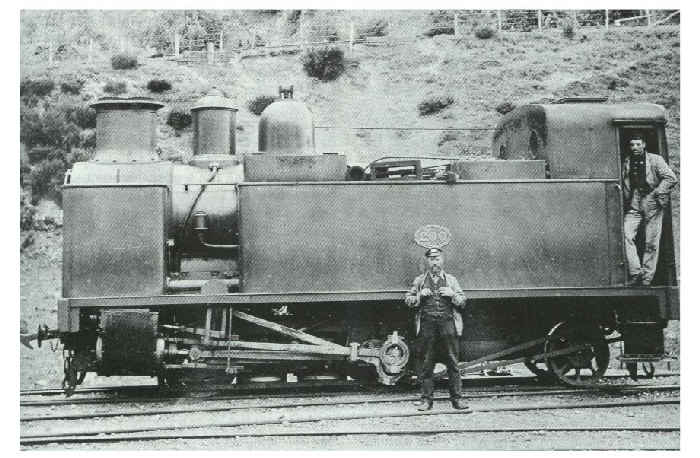Introduced: 1875
Number in Class: 6

Locomotive Specifications
|
2. Neilson & Co., Glasgow, Scotland (2) |
| Engine Weight: 34.0 tons |
Tender Weight: | Total Weight: 34.0 tons | Adhesive Weight: 26.0 tons |
| Length over Buffers: 24' 1" |
Total Wheelbase: 14' 3" | Engine Wheelbase: 14' 3" | Coupled Wheelbase: 6' 9" |
| Tender Wheelbase: | Driver Wheel Dia.: 32" : 23½" |
Cylinders Drive: Two - 14" x 16" |
Cylinders Adhesion: Two - 12" x 14" |
| Grate Area: 13.0 sq ft | Evaporative Area: 858 sq ft |
Superheated Area: | Working Pressure: 130 psig |
| Tractive Effort: 19510 lbs f |
Coal Capacity: 0.5 tons | Oil Capacity: | Water Capacity: 714 gals |
| Remarks: To handle the three-mile section of 1 in 15 gradient between Cross Creek and Summit, over the Rimutaka Range, these 'Fell' type locomotives had an 0-4-2 wheel arrangement and four horizontal driving wheels, between the frames, designed to grip a centre rail, thereby providing the extra adhesion needed for the climb. The outside engines drove on to the rear pair of coupled wheels of 32 inches in diameter. The inside cylinders drove four spring-loaded grip wheels of 22½ inches diameter. On descent of the incline, powerful hand-operated brakes bore against the centre rail and provided positive control over the speed of the locomotive. Additional brake vans, also equipped with similar braking gear, were interspersed at interval in the train to control descent braking. These locomotives were never required to run at higher speeds than 15 mph anywhere, and on the Rimutaka incline, their usual operating speed was between four and six miles per hour when ascending and about 10 mph when descending The Neilson 'H' Locomotives had Joy valve gear instead of Stephenson, a Belpaire firebox, and a larger grate area than the Avonside built engines and were 2 tons heavier. T.E. inside 11,000 outside 12,550 |
|
|